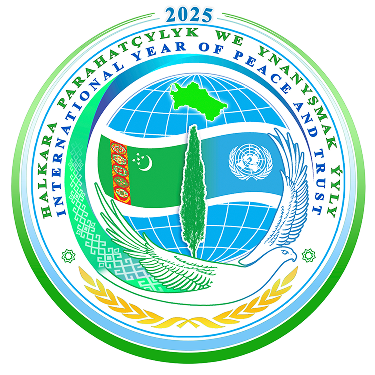OSCE-ORGANIZED WORKSHOP FOCUSES ON THE LAPIS LAZULI TRANSIT AND TRANSPORT CORRIDOR, ENHANCING CONNECTIVITY IN THE CASPIAN SEA REGION

An OSCE-organized regional workshop on the Lapis Lazuli transit and transport corridor started in Ashgabat on 28 March 2022.
Held in a hybrid format, the two-day workshop served as a platform to introduce the strategy on the implementation of the Lapis Lazuli transit and transport corridor.
The OSCE Centre in Ashgabat commissioned the development of the strategy and an action plan of its implementation in an effort to support the signatory countries of the Lapis Lazuli transit and transport agreement in operationalizing the corridor. The strategy aims to contribute to enhancing regional economic integration and transport, drastically reducing geographical distances by the smart use of all modes of transport.
More than sixty representatives from the four signatory countries of the Lapis Lazuli Agreement: Azerbaijan, Georgia, Turkey and Turkmenistan attended the workshop. In addition, the Secretary General of the Permanent Secretariat of the Intergovernmental Commission TRACECA, the Leader of Component 3 of the EU-funded Border Management Programme in Central Asia and OSCE experts participated in the event, presenting best practices of trade and transport facilitation.
During the opening session, John MacGregor, Head of the OSCE Centre in Ashgabat, noted a number OSCE commitments addressing economic connectivity and transport facilitation.
“Clearly, there is a strong correlation between increased co-operation and connectivity at borders, increased trade, and improving economic growth,” he said. “This joint work on the Lapis Lazuli corridor will absolutely benefit the peoples of all of the signatory countries through economic growth,” added MacGregor.
Representatives from the four signatory countries shared their comments and suggestions for updating the strategy and the action plan. The Centre will facilitate a review process, making the strategy and its action plan an integral part of the signatory countries’ national development strategy, thus nationally driven and owned. To this end, the workshop enabled the participants to identify the next steps to further support national partners across the corridor realize fully their transport and transit potential.


 NEWS
NEWS